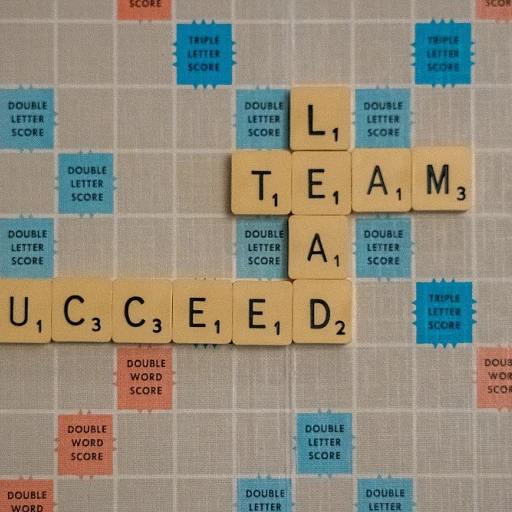Understanding the Background Check Process
Decoding the Intricacies of Background Verification
Understanding the entire background check process is crucial, particularly for candidates who have received a job offer. This process serves as a protective measure for employers, aiming to ensure the reliability and trustworthiness of potential hires. Here's a breakdown of what goes into this critical phase of the hiring process:
- Initiation of Background Checks: Once a job offer is made, the employer typically initiates background checks, involving criminal record searches, employment and education verifications, and, in some cases, a review of a candidate's credit history.
- Compliance with Legal Standards: Central to this process are regulations like the Fair Credit Reporting Act (FCRA), which mandates employers to obtain written consent from candidates before conducting a background check. This act also stipulates that candidates must receive a pre-adverse action notice if an issue arises.
- Comprehensive Screening Techniques: Employers may use a variety of background screening methods, each tailored to the specific role and industry standards. This can include drug testing, reference checks, and checks of social media activity to round out the candidate's profile.
Every piece of this process serves to verify a candidate's claims about their background, while helping employers avoid exposure to potential risks associated with hiring individuals with concerning criminal histories or inconsistent employment records. Understanding this systematic approach prepares candidates for one of the most crucial steps in securing new employment.
Aspiring hires should remain informed, as the impact of these checks can significantly influence job offers and potential employment. For those interested in staying ahead of the curve, watch out for emerging trends in future screening techniques.
Common Reasons for Failing a Background Check
Exploring the Common Grounds for Background Check Failures
When it comes to background check failures after a job offer, several common reasons come into play. A failed background check can be a significant hurdle in the hiring process, creating obstacles for both the employer and the candidate.
Firstly, discrepancies in a candidate's credit report are a frequent cause of concern. Employers often perform credit checks to evaluate financial responsibility, and poor credit history or financial misrepresentation can lead to negative outcomes. Unfortunately, inaccuracies in credit reporting can result in an unwarranted failed check.
Criminal records are another factor that may lead to adverse action in background checks. Candidates with criminal histories might face additional scrutiny, depending on the nature of the job and the employer’s policies. Employers must weigh these findings against the role’s requirements and the candidate’s rehabilitation efforts.
You might also encounter issues with past employment verification or a mismatch in educational credentials. A discrepancy in these areas could be due to simple clerical errors or miscommunication during the background screening process.
In addition to these, employers should be mindful of their obligations to provide a pre-adverse action notice to the candidate if any concerns arise during background checks. As outlined in the Fair Credit Reporting Act (FCRA), candidates deserve a chance to review a copy of their background report and dispute any inaccuracies before a final hiring decision is made.
Understanding these common pitfalls is crucial for candidates. It enables them to prepare, rectify inaccuracies, and provide explanations for any issues that surface during the screening process.
Legal Rights and Employer Obligations
Understanding Your Rights and Your Employer’s Role
When a job offer is extended, it's routine for employers to initiate various checks, including background checks. These checks can range from criminal history to credit report examinations, as part of the hiring process. Despite the necessity of these checks, there are legal rights that protect both candidates and employers involved in the screening.
The Fair Credit Reporting Act (FCRA) sets forth clear guidelines on how these checks should be conducted. Candidates need to be aware of their rights under the FCRA, which include the ability to receive a pre-adverse action notice if there's negative information that may impact the hiring decision. This notice is essentially a heads-up from the employer, giving the candidate time to review and dispute any inaccuracies in the background check report that might lead to a failed background screening.
Here’s what you need to remember:
- Pre-Adverse Action Notice: Employers must send this notice if there's potential for adverse action based on the check results. It should be accompanied by a copy of the background check and a summary of rights under the FCRA.
- Copy of Background Check Report: Candidates can request this, ensuring transparency and the opportunity to address any erroneous findings in their credit history or criminal record.
- Dispute Process: You have the right to dispute incomplete or inaccurate information found in the background or credit report.
Employers, on their part, are obligated to treat candidates fairly throughout this process. They can't simply rescind a job offer based on the findings of a credit check or criminal history without giving the candidate a chance to respond. This separation between notice and action allows for a careful examination of the facts before any decisions about employment are finalized.
As you navigate these processes, knowing what to expect and understanding your rights can significantly alleviate the stress of the background screening. For more insights on improving your experience during these checks, consider exploring strategies for
boosting the candidate experience in background checks.
Impact on Job Offers and Employment
Potential Ramifications of Unfavorable Background Check Results
Encountering failed background checks or issues during the background screening process can weigh heavily on a job offer and future employment opportunities. For candidates, this scenario not only impacts their immediate job prospects but also their future job search endeavors.
While employers conduct comprehensive background, credit, and criminal checks as part of the hiring process, a failed background report could prompt an employer to take adverse action against a candidate. This could range from withdrawing a job offer to re-evaluating the candidate's suitability for the role in question.
Adverse actions can severely affect a candidate's path toward employment, primarily if the decision is based on a criminal record or an unfavorable credit history. In these situations, many might not know they have options or legal rights to challenge or dispute the findings of their background checks.
Candidates must understand why their background check failed after a job offer, as this knowledge empowers them to take necessary corrective actions. By reviewing the copy of their background and credit report provided by the fair credit reporting act (FCRA), they can verify the accuracy of the information.
It's crucial to remember that pre adverse actions are required by labor laws to ensure candidates receive notice and have the opportunity to address any discrepancies. Subsequently, if adverse action is confirmed, an action notice should follow, outlining the reasons behind the hiring decision.
For employers, the implications of failed background checks go beyond revoking a job offer. Ensuring compliance with FCRA and maintaining a fair hiring process are paramount to avoiding potential legal troubles. Each step, from initial screening to delivering the adverse action notice, must be handled with adequacy, transparency, and fairness.
In the ever-evolving landscape of background screening, both employers and job candidates need to stay informed and proactive in dealing with adverse outcomes to reinforce credibility and foster mutual trust during employment transitions.
Steps to Take After a Failed Background Check
Navigating Steps After a Negative Outcome in Background Checks
Experiencing a failed background check can be a stressful moment for a candidate expecting a job offer. However, understanding the necessary steps after receiving an adverse action notice can guide you through this challenging phase.
- Request a Copy of the Background Check Report: Under the Fair Credit Reporting Act (FCRA), you are entitled to a copy of the background check report that led to the adverse decision. Inspect the document closely for any inaccuracies in your criminal history, credit report, or other details.
- Address and Correct Discrepancies: If you find errors in your background check or credit history, it is crucial to address these promptly. Contact the credit reporting agency or the background screening company to correct these inaccuracies. Employers are obligated to provide time for this under the FCRA.
- Engage in Open Communication: Reach out to the prospective employer to discuss the findings. A transparent conversation can sometimes help clarify misunderstandings or provide context to a criminal record or discrepancies in the report.
- Legal Advice Might Be Necessary: If the background check fails and you believe the process wasn't compliant with legal standards, consulting with a legal professional could provide advice on how to proceed.
- Prepare for Future Screenings: Learn from this experience and take steps to mitigate similar outcomes in future background checks. Staying informed about the processes and potential pitfalls can enhance your preparations for the hiring process.
Being proactive and understanding your rights and obligations both as a candidate and an employer can help in managing background check challenges and navigating your path in the job market confidently.
Future Trends in Background Screening
Adapting to New Background Screening Innovations
As we look towards the future of background checks, several trends continue to reshape the hiring process. Employers are consistently seeking ways to enhance the precision and efficiency of their background checks, and continuous advancements in technology play a pivotal role in this evolution.
One of the leading trends is the increasing use of artificial intelligence and automation in conducting background screenings. AI-powered tools can swiftly analyze vast amounts of data from credit reports, criminal records, and other crucial sources, improving accuracy and reducing the likelihood of errors that could lead to adverse action notices. These tools can also ensure compliance with Fair Credit Reporting Act (FCRA) regulations, minimizing legal risks for employers.
Moreover, continuous background screening is gaining traction. Unlike traditional screening that occurs prior to a job offer, continuous screening allows employers to monitor employees' records on an ongoing basis. This proactive approach can identify potential issues before they escalate into employment disruptions, enhancing workplace safety and trust.
In the realm of employment, remote work has further influenced background check processes. Employers are now adjusting their methods to accommodate remote hiring, often relying on digital platforms to verify candidate information and credentials.
Data privacy concerns also shape future trends. Candidates are increasingly aware of their rights and expect transparency regarding what information is collected during a background check. Employers, therefore, must ensure they provide clear, concise pre-adverse action notices to candidates when necessary, along with a copy of the background check report, as required by the FCRA.
As these trends develop, employers and job candidates alike must stay informed to navigate the complexities of background checks successfully. Anytime there's a report of a failed background check, understanding these new approaches can be crucial in determining the appropriate next steps.










